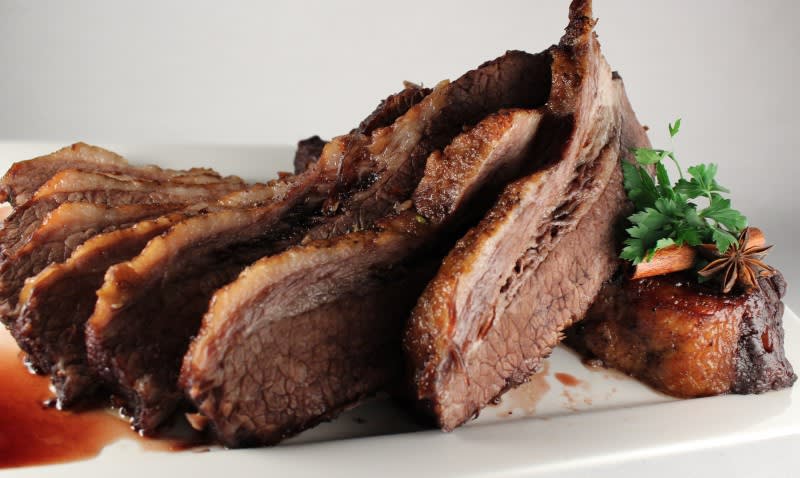
A few years ago I read with great interest that Wolfgang Puck, the famous American chef, would be using meat from animals that were raised and slaughtered using humane practices. All of his restaurants would follow a 9-point plan that included, among other things, using eggs from hens that have not been confined, using veal from calves that have not been crated, serving only sustainable fish and chicken and turkey only from farms that comply with what he considered to be appropriate animal welfare standards. Mr. Puck also recommended a specific manner of slaughtering chickens and turkeys so as to reduce the animals’ suffering.
The world applauded Puck, as well it should. Although his methods and manner are different, Mr. Puck’s regard for animal welfare begins to contemplate the ethics of kashruth. Kashruth is not just a bunch of arbitrary rules and regulations; it is based on the compassionate treatment of animals and respect for life. It’s not simply that a cow must have cloven hooves and chew its cud, but that it has been treated well and has been slaughtered in the most humane way possible.
For thousands of years, the Jewish dietary laws were the only ones that showed this kind of regard and respect for the food we eat. Today, because there is considerably more focus on animal welfare, people such as Wolfgang Puck and other restaurateurs are paying more attention to the issue. This attention has caused many people to return to kosher or begin anew, even some who are not Jewish.
Yes, there have been problems in the kosher meat industry, particularly of late. But the wisdom and morality behind kashruth still applies and the demand for kosher food steadily rises. This, despite the fact that kosher food is more expensive, a burden in today’s economic climate.
When it comes to the actual cooking, everyone familiar with kosher meat and poultry knows it is saltier. This too has to do with moral concerns; the dietary laws forbid consuming blood, the essence of life. Kosher meat is soaked and salted to rid the flesh of prohibited blood, and even though it is rinsed, kosher meat retains some salt. Anyone cooking kosher meat should be aware that extra salt is usually not needed for recipes. It’s best to taste and add salt only as needed.
Kosher meat can be used deliciously for any style of cuisine. Season a ribeye steak with a Southwestern spice rub; use lamb stew meat to make a Moroccan style tagine or East Indian curry; cook Spanish paella filled with chicken and kosher sausage. Because of the salt issue though, pay particular attention when preparing Chinese, Japanese, Korean and other Asian recipes that call for soy sauce. Soy sauce is also salty, so cut down on the quantities indicated in a recipe or use low-sodium (sometimes called “lite”) varieties (there are several brands).
The Bulgogi recipe is a good example of how kosher cooking can encompass almost any ethnic style. This Korean dish, which calls for short ribs, is a perfect recipe for flanken. Flanken is tough and can be gristly, so it’s usually cooked slowly, with moist heat in soups or braises; it’s not typically grilled or broiled. On the other hand, grilled flanken is pleasantly chewy and when prepared as Bulgogi the fragrant spices and flavorful toasted sesame seeds draw attention away from texture. Bulgogi goes nicely with sautéed bok choy and cooked rice.
Flemish Style Beef Stew is a hearty, comforting dish for winter. The mustard and wine vinegar make the sauce faintly tangy; serve this with mashed potatoes or cooked egg noodles — there’s lots of gravy to enjoy.

Ronnie Fein has been a freelance food and lifestyle writer since 1980. She currently writes regular features for the food and community sections of daily newspapers and has written articles for Newsday, Cook’s Illustrated, Consumer’s Digest, Connecticut magazine, and many other publications. She operates the Ronnie Fein School of Creative Cooking in Stamford, Connecticut and is the author of three cookbooks, the most recent is
Hip Kosher (DaCapo, 2008).
The words of this author reflect his/her own opinions and do not necessarily represent the official position of the Orthodox Union.
